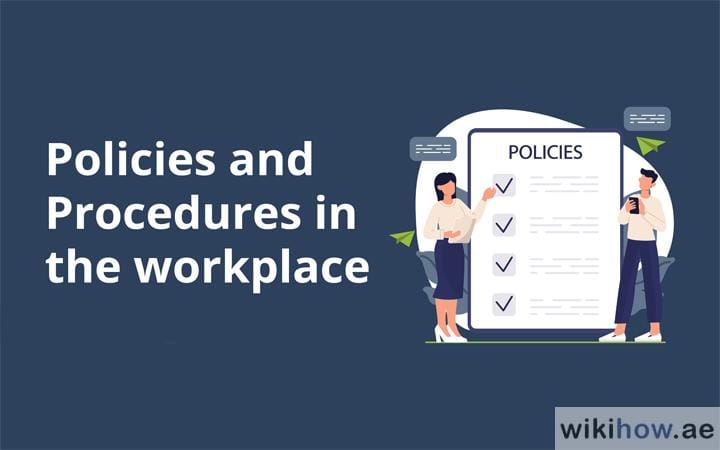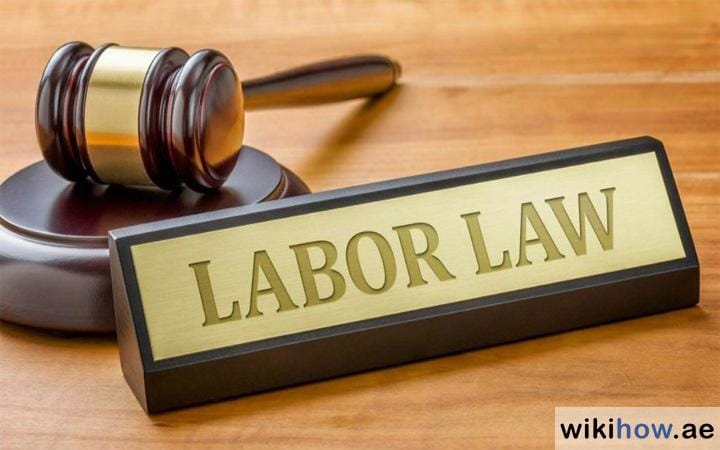UAE Labor Law Updates 2026: Key Changes and Implications

The UAE has introduced major changes to its labor laws in 2026, aligning with international standards of employment. These changes are being brought in to enhance job security, transparency, and worker satisfaction. Employers and employees alike need to be aware of these changes to ensure compliance; which is why we will continue to review the labor laws in the UAE in full in this article.
Significance of Labor Law in UAE Economic Landscape
An important legislation of labor laws brings balance and fairness to the workforce in the great country UAE. They go even along with the ambitions of bringing global talents and creating a sustainable economy within the earth itself. The updates to 2026 has further endorsed this position as the environment for competitiveness in terms of employment.
Employment Contracts Under UAE Labor Law
In the UAE, every employment in one way or another has employment contracts as anchors for the existence of their employer-employee relationship. The Law indicates that such contracts should mention in clear terms job roles and responsibilities, details of salaries and benefits and conditions for termination. Emphasis in the changes for 2026 shall include transparency, no discrimination, and adherence to fixed-term contracts. The purpose of these changes is to minimize disputes, achieve legal compliance, and provide a balanced and secure work environment for all parties involved. Legal requirements for startups in UAE, if understood, can help startups sail through the regulations with ease to avoid legal complications.

Changes to Major Employment Contract Rules
The changes in labor laws shall make contracts clear with regard to the employment and terms of employment. Benefits must also be specified by the employers. All these are meant to remove chances of disputes and misinterpretation, ensuring transparency and legal clarity in every labour contract in UAE.
Fixed-Term Vs Indefinite Contracts
Traditionally, fixed-term contracts remain the standard model contracts for employment in the UAE. Nevertheless, for a client seeking clarification on renewal and termination, the new regulations make provisions in this respect. Employers have a time period within which to comply with the new time frame and conditions or be penalized.
Types of Employment Models Recognised Under UAE Labour Law
The UAE Labour Law has advanced to meet the modern workforce with a wide and general acceptance of different employment models, such as full-time, part-time, temporary, flexible or remote working hours, and job-sharing. This has provided a means for individuals to promote work-life balance, promote productivity and meet the varying needs of employers and employees. Each forms of employment model has certain rights and obligations and entitlements under the law to provide greater flexibility and protection under the law.

Full-Time, Part-Time, Temporary and Flexible Work Models
According to the UAE Labour Law, full-time work refers to work obligations relating to the entire number of hours specified by the employer as official hours. Part-time work is in the role title and allows employees reduced [fewer] hours to accommodate time for studies, freelancing or parenting. Conditions of temporary employment are contracted with a specified timeframe, or the completion of a project and as the term implies, also used on short-term engagements. Flexible work models enable flexible scheduling or dynamic scheduling and allow the employer and employee to agree on a location and work hours which improves operational flexibility and convenience.
Remote Work and Job-Sharing Arrangements
Remote work, which is officially recognized under UAE law, allows employees to work outside the traditional office environment and often from home or another approved location. It facilitates a digital transformation in business practices, allowing employees to devote less time travelling and more to their work, which helps to increase job satisfaction and performance. Job-sharing entails two employees collaborate to share the duties of one full-time position – it is a means of potential work-life balance, developments in job-sharing create opportunities to employ a broader portion of the population. Both options will be defined in contracts based on clear expectations, outcome measurement, and data protection processes.
Legal Requirements for Each Mode of Work
Different employment models under UAE Labour Law, as noted above, are also subject to certain legal requirements to ensure transparency and fairness. Full-time workers and part-time workers must also have a clear written contract that outlines work hours, salaries/wages, and benefits. Temporary workers and flexible workers are entitled to prorated benefits and must receive notice as to length of contract and limits to termination. Remote workers and job-sharing workers must have written mutual agreements documenting worker responsibilities, communication protocols and expectation, information and data security. These legal requirements to protect both parties to enhance a well-organized rights-based framework. Additionally, aligning with UAE business regulations helps businesses operate legally and efficiently, fostering a transparent and productive workplace environment.
UAE Labour Law Probation Period Rules
The probation period under the UAE Labour Law is used as a trial period for both employer and employee to assess whether they are a good fit for the job and whether the employee is capable of performing the job function. During the probation period and with notice, either the employer or the employee can terminate the employment contract. The law protects certain rights for employees during the probation, even if the probation ends in termination. There are protections in place for fair employment but the law acknowledges that employers must afford some flexibility when they are trying to put together a successful team.

Length of terms and termination conditions
The probation period while in the UAE can’t extend longer than six months from the employee’s starting date. While the employee is still probationary status, an employer can terminate the contract with a minimum of 14 days’ written notice. Conversely, if an employee resigns during the probation, they must give a minimum of 14 days’ notice and if they intend to leave the UAE, they would provide at least one months’ notice. These particular rules ensure a fair process for both parties, allowing a reasonable time frame and legal clarity before making decisions about employment.
New Probation Rules for Changing Jobs in UAE
When changing jobs in the UAE while on probation, the new labour law sets out procedures. If an employee is planning to change to another UAE-based employer while on probation, the employee must give the participating employer at least one month’s notice. Depending on these conditions that are agreed to, the new employer may need to pay some reasonable amount to compensate the previous employer for recruitment and training any new employee. These rules have been put in place to regulate mobility and prevent the undesirable use of probation and to look after the interests of parties involved in the employment transfer process.
Professional Classification Framework by MoHRE
The Ministry of Human Resources and Emiratisation (MoHRE) in the UAE has developed a Professional Classification Framework to create homogenous job titles and to ensure that workforce qualifications complement market requirements. Under the framework, employees will be placed into separate occupational levels depending on the level of education, experience of the individual and job role. The goal of the Professional Classification Framework is to provide clear and transparent employment procedures, provide equitable hiring process and support Emiratisation clear roles and skills required for occupations.
MoHRE Classification: The 9 Occupational Levels, Explained
MoHRE places its classifications at nine occupational levels, from low-skill laborers to high-skill executives and professionals. Level 1 includes managers and specialists with advanced degrees and broad decision-making authority. Levels 2 through 4 include professionals and other technicians, with varying degrees of academic antecedents and experience. The 5-9 levels are made up mostly of support roles and blue-collar workers, who need fair little formal, but essential technical training. This stratified classification system creates standards for the job market, support an effective and systematic recruiting and training policy for all domains.
Criteria for Being Recognized as a Skilled Worker
To be recognized as a skilled worker under UAE Labour Law, employees must meet specific requirements outlined by MoHRE which are at least a high school education (or its equivalent), a valid professional qualification (or occupational license where applicable), and be working in a job that is listed at one of the first five categories of the occupational framework and require reasonable technical or practical expertise to perform. If an employee meets these requirements, they will be eligible for a higher degree of job mobility, rights and benefits under UAE laws.
Employee’s Rights and Benefits
Under the UAE Labor Law, employee rights in UAE include fundamental entitlements such as fair remuneration, annual and sick leave, maternity and paternity leave, and end-of-service gratuity. The updates issued in 2026 focus on equality in the workplace, non-discrimination policies, and enhanced standards in terms of workplace safety, with a view to ensuring a supportive and balanced work environment for all employees. Understanding these entitlements is very crucial for employers and employees to avoid falling into error.

Annual Leave Improved Regulations and Sick Leave
The UAE labor law states that it is now clear as to the scope of annual and sick leaves for employees. The law guarantees the employees sufficient paid leave to maintain a proper work-life balance; it also stipulates that penalties be applied to companies found violating such rights. Detailed sick leave regulations in UAE help ensure fair treatment and legal compliance in workplace leave policies.
Enriched maternity and paternity leaves
Maternity and paternity leaves: The provisions that govern this have been reviewed and amended to reflect family-friendly policies. These will require employers to make available fully paid leaves for new parents. Changes will make the organized mandate more inclusive and less gender-biased.
Study Leave and Eligibility Guidelines
Under the UAE Labour Law, study leave is a right of employees that continue their education and further their qualifications while simultaneously maintaining employment. To be eligible, employees must have completed a minimum of 2 years of service with the same employer and that the program of study is offered by an accredited educational institution within the UAE. Eligible employees are entitled to up to 10 days of study leave per year for examinations or compulsory study requirements if they provide documented evidence and notice of intention. This clearly supports and encourages employees’ personal development and contributes to a more educated and trained workforce overall.
End of Service Benefits and Termination
Revisions for 2026 provide justifiable treatment at the end of the period of employment. Employers shall give substantial reason and notice prior to the terminations, and arbitrary dismissal shall be penalized for the good of employee rights. Renovated end of service benefits in UAE calculations are provided to make payout transparent and justifiable. Penalty-free from disputes will flow to employers who comply with these changes.

Restrictive covenants in an employment contract
Restrictive covenants are clauses in employment contracts (found in UAE law or anywhere else in the world) to restrict employees from taking on employment with a competing business or starting a competing business, after leaving their employment or to give the employer comfort that they will not disclose certain aspects of their employment (like confidential information). Restrictive covenants attempt to protect an employer’s business interests, client information and relationships. They can be enforceable subject to certain requirements, namely set out under the UAE Labour Law that ensure they are reasonable and fair and not unreasonably prohibitive on an individual’s right to work.
Duration and Territorial Limits
To be a valid non-compete clause according to UAE Labour Law, it must be limited in terms of duration, geographical limit and type of work. In general, the maximum enforceable length of a non-compete clause is two years after the end of your employment relationship. In terms of geographic limit, it must be limited to the area reasonably controlled, or to the area where the employee had influence, or where the employee had access to sensitive business information. The UAE courts will generally find that any terms that are too long, or too broad or indefinite are unenforceable. At the end of the day, UAE courts want to ensure there is a semblance of proportionality and fairness to Non-compete clauses.
Conditions for Valid Enforcement in UAE
For a non-compete clause to be enforceable in the UAE, several legal conditions must be met. The employee should have had access to confidential information or held a strategic role during their employment. The clause must be explicitly stated in the contract, clearly outlining the duration, geographic region, and the specific business activities restricted. Additionally, enforcement typically occurs only if the employer can prove actual harm or business risk from the breach. Courts will assess whether the clause unduly restricts the employee’s ability to earn a livelihood, ensuring a balanced approach.
Workplace policies and standards
The UAE labor law now enforces stricter regulations against harassment and discrimination. Employers must establish clear policies to create a safe working environment. Regular audits ensure that these standards are upheld.
Employers have to provide a higher level of health and safety at work. Training is also compulsory, as are safety audits. These will help to minimize workplace accidents and illnesses.

UAE Labour Law and Occupational Health & Safety Standards
The UAE Labour Law strongly values workplace health and safety and gives employers the responsibility of providing a safe, hygienic, and risk-free environment for all workers. Although laws differ from place to place, the UAE Labour Law aims to be in line with international labour standards, and minimize workplace risks while promoting worker health and safety and improving productivity. Employers must take preventive measures to provide employee training about safety requirements and to provide personal protective equipment to establish a safe work environment for all, but especially for workers in high-risk occupations (construction, manufacturing, etc.).
Clause 13 on Safe Working Conditions
Clause 13 of the UAE Labour Law clearly states that the employer will ensure the workplace is maintained in accordance with all required safety and health regulations. This includes ensuring there is adequate ventilation, light, cleanliness, and adequate provision of necessary protective equipment. Employers must regularly survey for possible hazards and then will take actions to avert from foreseeable accidents occurring at the workplace or entering into an occupational disease position. Notably, the position includes if work related injuries or illnesses occur, the employer is diligent in its reporting of work related injuries and illnesses, which helps develops a collaborative culture of responsibility in recognising and managing the risk of injury and diseases.
Tags of summer’s midday work ban: Rules & consequences
To protect workers from extreme heat, the UAE has a Summer Midday Work Ban, which usually is enforced from June 15 to September 15, that prohibits outdoor work from 12:30 PM to 3:00 PM. This ban is an important labor protection for workers, especially in industries such as construction and logistics. Any violation of the ban will result in fines assessed by not only the MoHRE – but also Abu Dhabi DoL and Dubai DoL. Employers who violate the ban can be subject to fines ranging from AED 5,000 to AED 50,000, based on the number of workers affected by the ban. The MoHRE is monitoring compliance with the ban and encourages employers to adjust working times for outdoor employees, rest breaks and easy access water stations as the summer months remain.
Labor Dispute Resolution Mechanisms
The UAE has introduced easy procedures to resolve labor disputes. Emphasizes mediation and arbitration for the peaceful resolution of disputes in an expeditious manner. Employees can now expect faster results.
UAE courts are playing a crucial role in the settlement of unsettled disputes. The updated procedures ensure fairness and efficiency in handling employment cases.

Wage Protection System (WPS) and Salary Compliance
The Wage Protection System (WPS) is a government-regulated electronic salary transfer mechanism developed by the Central Bank of the UAE in cooperation with the Ministry of Human Resources and Emiratisation (MoHRE). The main purpose of the WPS is to guarantee all employees in the private sector are paid wages correctly and get paid on time. Employers must register for a WPS and pay wages through WPS. Hereafter, it upholds transparency and accountability. The WPS program enhances financial security for workers and allows the government to monitor labour law compliance, including adherence to the minimum wage in UAE.
Penalties for Non-Payment or Late Wages
Employers may face severe penalties under the UAE Labor Law if they fail to pay employees’ wages on time through the WPS. The business may be subject to administrative penalties, including fines, work permit suspension, and a classification downgrade, if wages are not paid within ten days of the due date. Even more severe penalties, such as legal action and prohibitions on hiring new employees, may result from repeated infractions or prolonged nonpayment. Enforcing wage compliance across sectors and protecting workers’ rights are the goals of these severe penalties.
MoHRE’s New Role in Wage Dispute Resolution
When it comes to settling wage disputes between employers and employees, the Ministry of Human Resources and Emiratization (MoHRE) is essential. Following the filing of a complaint, MoHRE looks into the issue, helps with mediation, and makes sure that any unpaid wages are paid as soon as possible. The dispute may be brought before the UAE Labour Court if an initial mediation fails to resolve it. Through a just and effective legal framework, MoHRE’s active participation guarantees that both parties abide by labor laws and that workers’ financial rights are safeguarded.
Responsibilities and Liabilities of Employers
The new labour laws made employers to follow stringent reporting standards. In other words, proper records must exist as regards contracts, wages and benefits pertaining to employees. Otherwise, a fine may be imposed or penalties may apply on a legal level for non-compliance.
Employers who do not conform [to] the law will be subject to fines and other legal proceedings: the government assures that penalties are enforced with accountability.
UAE Work Permits & Lawful Work Authorizations
Anyone working in the United Arab Emirates must have a valid work permit. Work permit issuance is supervised by the Ministry of Human Resources and Emiratization (MoHRE), which also makes sure that all employment practices adhere to national labor laws. These permits ensure that workers are officially registered and protected under UAE law and are necessary for legal residency connected to employment. Strict protocols must be followed by both employers and employees in order to acquire and keep these permits during the course of their employment.

Every One of the Twelve Work Permit Types in 2026
To accommodate different employment situations in the UAE, MoHRE recognizes 12 different types of work permits as of 2026. These include permits for regular work, temporary and part-time jobs, freelance work, mission-based work, and others, such as juvenile permits for workers between the ages of 15 and 18. Golden visa holders, family-sponsored individuals and students participating in training or internships are also eligible for specialized permits. This classification preserves legal clarity and regulatory oversight while enabling the government to meet the needs of a diverse workforce.
Employer Responsibilities and Cost Structure
The classification of the business and the skill level of the employee determine how much it costs to obtain a work permit in the United Arab Emirates. All permit-related costs, such as processing fees, medical examinations, and Emirates ID issuance, must be paid for by the employer. Companies must also make sure that visa and labor laws are followed and that renewals are made on time. To ensure equitable treatment and financial transparency in the hiring process, they are not allowed to deduct these expenses from employees’ salaries.
Guidelines and Records for Cancelling Permits
In order to prevent legal issues for both the employer and the employee, work permit cancellation in the United Arab Emirates must adhere to official procedures. The original permit, employee ID, and a signed cancellation request form are among the pertinent documents that must be submitted in order to complete the cancellation process. If the employee does not transfer to another position, they must also cancel their residence visa and leave the country after it has been approved by MoHRE. A seamless exit or transition is ensured by timely and accurate documentation, which also helps preserve a spotless legal record for future employment.
Conclusion: Key Takeaways from UAE Labor Law Updates 2026
The UAE Labor Law updates for 2026 mark a significant step towards enhancing transparency, fairness and the protection of both employees and employers. From revised employment contracts and improved leave policies to strengthened dispute resolution mechanisms, these changes aim to create a balanced and thriving work environment. By adhering to these regulations, employers can ensure compliance, while employees can enjoy greater security and workplace satisfaction. Follow the latest news in UAE only on WikiHow!
Follow the latest development in the UAE, the latest Labour Laws and many more news items. Ask questions and be informed.
Frequently Asked Questions (FAQs)
1. What are the key changes in the UAE Labor Law 2026?
The key changes include updates in employment contracts, leave entitlements, termination policies, and end-of-service gratuity calculations. There’s also a stronger focus on workplace safety, anti-harassment measures, and improved dispute resolution processes.
2. How has maternity and paternity leave changed under the new law?
The updated UAE Labor Law provides enhanced maternity and paternity leave benefits, ensuring better support for working parents. These changes aim to promote work-life balance and gender equality in the workplace.
3. What are the new rules for end-of-service gratuity calculations?
End-of-service gratuity calculations have been clarified to ensure transparency and fairness. Employees are entitled to receive gratuity based on their length of service and type of employment contract.
4. How does the new law address workplace harassment and discrimination?
The updated labor law enforces stricter policies against harassment and discrimination. Employers are required to implement clear protocols to ensure a safe and inclusive workplace.






What is the most important lesson you can take away from this article?
The most important lesson is that staying informed about the 2025 UAE labor law updates helps both employers and employees ensure compliance and fair workplace practices.